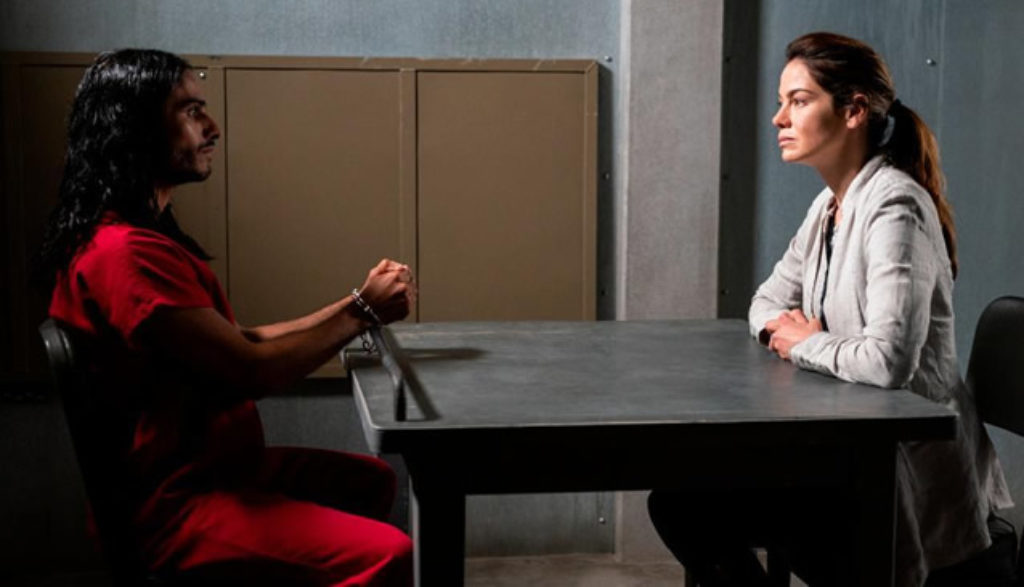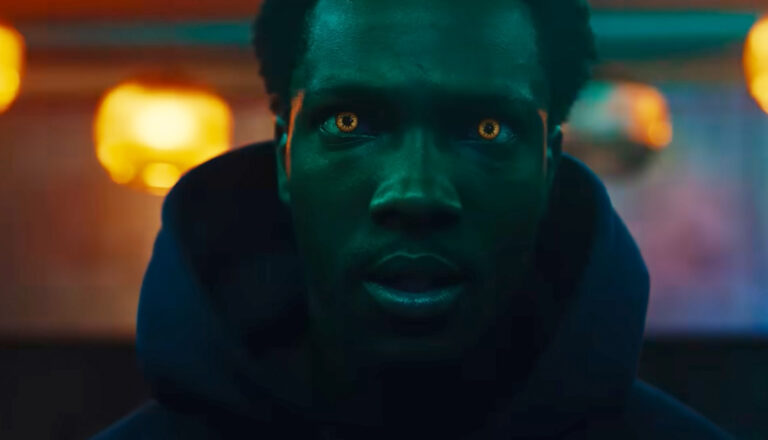
The Acolyte
The Acolyte takes Star Wars fans into a time when the Empire didn’t exist. But that doesn’t make everything rosy—in that galaxy or on this show.

Will Jesus come back? When? How will we know? And how can we tell the difference between the real deal and someone just … pretending?
These are all pretty big questions for the faithful, even—or perhaps especially—in the 21st century. In an age where truth often seems so relative, when cynicism is both so rampant and so warranted, when asylums are filled with people claiming to be on a first-name basis with God, we’re wise to ask a few questions before throwing our lot in with anyone claiming to be the Messiah.
And frankly, that’s even true if we’re talking about a show bearing the name.
He came, it seems, almost literally out of nowhere. The CIA had no idea who this fellow was when he literally stepped out of the desert and walked to the edge of Israel, his 2,000 hungry followers calling him al-Masih (the Messiah). He later quips that he just wanted “to see the holy land” to Mossad interrogator Aviram Dahan. But then—just when Aviram is about to try to punch the truth out of the enigmatic leader—the man known as al-Masih goes missing from his Israeli prison cell, only to show up at a hard-luck church in Texas. Oh, and yeah, he comes to claim he’s the second coming of Christ.
Lots of folks have a problem with this, starting with the CIA’s Eva Geller. She knows that folks don’t just vanish and then rematerialize. al-Masih has a name and a problematic family history, she learns. He’s probably a con man. He might be crazy. He can’t be who he claims to be … can he?
But the miracles and uncanny foretellings certainly give his own followers plenty of reasons to follow. Perhaps a determined skeptic might be able to wave them away, but the abilities he seems to have—and transporting himself halfway around the globe is just for starters—certainly look convincing.
That, however, opens up another frightening possibility. What if this guy isn’t Christ, but rather the antichrist? What if he’s leading his followers, the skeptics, even the world itself, to its doom?
Netflix’s Messiah is created by Michael Petroni,who’s no stranger to spiritually themed entertainment. He wrote the screenplay for The Chronicles of Narnia: The Voyage of the Dawn Treader, and he previously created a TV series called Miracles—about an investigator from the Catholic church who explores and, if necessary, debunks them. Messiah also lists Mark Burnett and Roma Downey among the show’s executive producers, the husband-and-wife team that helped bring the unexpected ratings smash The Bible to the History Channel in 2013.
But Messiah feels a little more like a spiritually-centric Homeland than The Bible, and that comes with its share of issues.
First off, this is a show more about questions than answers—an eschatological mystery, if you will. Just who is this guy? One of those possible answers has already engendered plenty of controversy in the Muslim world. See, “al-Masih” doesn’t just mean “messiah.” It’s also how Islam’s version of the antichrist, Dajjal, introduces himself. Because of this connection, some Muslims have instituted a change.org petition calling for a series boycott, and Jordan’s Royal Film Commission has asked Netflix not to stream the show in the country.
Netflix hasn’t complied yet, and a Netflix spokesperson told Deadline that “Messiah is a work of fiction. It is not based on any one character, figure or religion. All Netflix shows feature ratings and information to help members make their own decisions about what’s right for them and their families.”
That rating, by the way, is TV-MA—the most “restrictive” in the world of television—and the show earns it. Messiah can be violent and jarring, and the dialogue is flecked with plenty of f- and s-words.
We can’t really judge the show’s theological underpinnings given the uncertainty surrounding its central character. But in pushing forward the show’s storyline, many a character dismisses or demeans the Almighty, and “al-Masih” may express thoughts that rub against viewers’ own beliefs pretty strongly.
Messiah, like its titular focal point, is intriguing, provocative and divisive. It can be crass and violent. And while it might stir thought and offer plenty of fodder for conversation, none of that mitigate’s the show’s problems. Storywise, it’s still undetermined whether the show’s messiah is worth following. But is the show worth following? That’s a question we can’t answer for you.
As a resurgent ISIL attacks Damascus, a mysterious man in the city preaches that “God’s hand will turn them away.” A massive sandstorm—one that lasts 43 days—then barrels into town, forcing ISIL to withdraw. Believers flock to the mysterious man’s side, and he promptly leads them into the desert … and toward Israel. Back in Washington D.C., CIA agent Eva Geller begins tracking the stranger’s movements from afar.
The man, called “al-Masih” by his followers, makes a great many religious statements. He denies any sort of power of his own, saying “there is no deity but God.” He insists that God works through everyone who truly serves him. And when a follower (a Sunni Muslim, it’s suggested) says, “You mean He works through all who righteously follow Islam,” the mysterious man stares at him coldly. “Don’t tell me what I mean,” he says, and then wonders why no women are involved in this important conversation.
“I’m here to tell you to throw away your assumptions about God,” he tells his flock. “In this hour, mankind is a rudderless boat. Cling to me.” When arrested by Israel, the man seems to know a great deal about his interrogator’s shady past. It’s said that he preached for 30 days during the sandstorm without food or water. Some call him the devil. He demands that his followers give up their weapons, which he orders to be buried. Eva places stones on a Jewish grave marker in remembrance. She reads graffiti—a quote attributed to Oprah Winfrey. “You believe what you believe,” the graffiti reads. In flashback, we see a mother talking to her young son, trying to explain why someone dear to them (perhaps the boy’s father) was shot and killed.
“Did God not love him?” the boy asks his mother.
“God loved him so much,” his mother answers. “He took him sooner than we wanted.”
That same woman later dies, her lifeless body cradled in her now teen boy’s arms. He buries her and others under piles of rubble. A man pounds away at a punching bag, shirtless, revealing a host of scars on his back. We see loads of explosions. The seeming prophet tells an interrogator that the interrogator derives joy from hurting others. “I take pride in my work, yes,” the man says But when al-Masih mentions something about a boy, the interrogator looks deeply disturbed.
The interrogator goes to a bar and drinks with a buddy. (The buddy smokes a cigarette.) An Israeli soldier seems to roll and smoke a joint. Characters utter the f-word at least nine times and the s-word another 10. God’s name is misused once.


Paul Asay has been part of the Plugged In staff since 2007, watching and reviewing roughly 15 quintillion movies and television shows. He’s written for a number of other publications, too, including Time, The Washington Post and Christianity Today. The author of several books, Paul loves to find spirituality in unexpected places, including popular entertainment, and he loves all things superhero. His vices include James Bond films, Mountain Dew and terrible B-grade movies. He’s married, has two children and a neurotic dog, runs marathons on occasion and hopes to someday own his own tuxedo. Feel free to follow him on Twitter @AsayPaul.

The Acolyte takes Star Wars fans into a time when the Empire didn’t exist. But that doesn’t make everything rosy—in that galaxy or on this show.

Supacell brings awareness to sickle cell in this creative superhero narrative from Netflix. But the show itself can be a bit fickle.

Rising Impact tells a story of a young boy’s perseverance as he learns, alongside the viewer, about the game of golf.

Land of Women positions itself as a heartwarming story with unsavory secrets. Fitting that it comes with unwelcome surprises of its own.